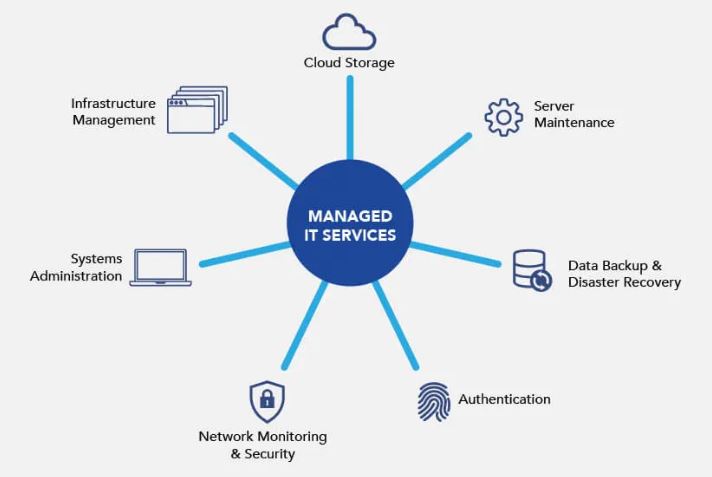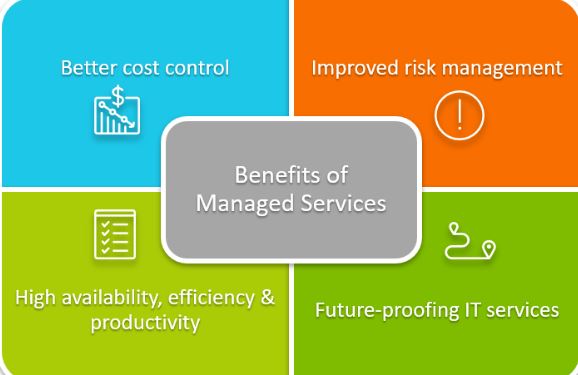- Technical Architect Certification| A Complete guide
- What is a Managed Service? : A Comprehensive Guide | Everything You Need to Know
- How ITIL 4 Helps in the Breakdown of Siloed Working | All you need to know [ OverView ]
- Microservices vs SOA | Know Their Differences and Which Should You Learn?
- ITSM vs ITIL | Know Their Differences and Which Should You Learn?
- Key Benefits of ITIL | A Complete Guide For Beginners [ OverView ]
- SCCM Latest Version | Everything You Need to Know | A Definitive Guide
- TOGAF Vs Zachman | Know Their Differences and Which Should You Learn?
- What is Servicenow Workflow ? Comprehensive Guide [ Explained ]
- What is TOGAF? : Everything You Need to Know | Expert’s Top Picks | Free Guide Tutorial
- What Is SCCM? ( System Center Configuration Manager ) | A Complete Guide with Best Practices
- What is ServiceNow Ticketing Tool ? All you need to know [ OverView ]
- COBIT vs ITIL | Differences and Which Should You Learn?
- Service Delivery Manager | Everything You Need to Know
- What Is Service V Model approach ITIL v3?
- What is ITSM? – General Framework and its Implementation
- Top IT Security Jobs
- Tips to Clear the ITIL 4 Foundation Exam
- How to Build a Successful Career in IT Service Management?
- Top 10 Books to Read for the ITIL Foundation Certification
- Top IT Certifications
- What are Cobit 5 Enablers?
- What Are The Roles and Responsibilities of IT Security Professionals?
- TOGAF 9.1 – Quick Start Guide for IT Enterprise Architect
- What Is ITIL Incident Management and its Importance?
- Microsoft Certification vs. Cisco Certification
- ITIL: CSF & KPIs
- ITIL 2011 vs ITIL V3
- What are IT security policies?
- ITIL® V3 Roles And Responsibilities
- What is RPA?
- What is IT governance and its Significance?
- Roadmap to TOGAF 9.1 Certification Process Infographics
- How to become a Certified ITIL Expert?
- ITIL: Key Concepts And Summary
- ITIL Intermediate Certification Exam Process
- 5S Methodology Implementation
- Top 5 CompTIA Certification courses
- Reasons To Get A TOGAF Certification
- How To Get IT Service Management Certification
- Designing SLA Structures, and SLA Content in ITIL
- ITIL 4 vs ITIL V3: What’s New?
- What is COBIT Framework – COBIT Principles?
- Technical Architect Certification| A Complete guide
- What is a Managed Service? : A Comprehensive Guide | Everything You Need to Know
- How ITIL 4 Helps in the Breakdown of Siloed Working | All you need to know [ OverView ]
- Microservices vs SOA | Know Their Differences and Which Should You Learn?
- ITSM vs ITIL | Know Their Differences and Which Should You Learn?
- Key Benefits of ITIL | A Complete Guide For Beginners [ OverView ]
- SCCM Latest Version | Everything You Need to Know | A Definitive Guide
- TOGAF Vs Zachman | Know Their Differences and Which Should You Learn?
- What is Servicenow Workflow ? Comprehensive Guide [ Explained ]
- What is TOGAF? : Everything You Need to Know | Expert’s Top Picks | Free Guide Tutorial
- What Is SCCM? ( System Center Configuration Manager ) | A Complete Guide with Best Practices
- What is ServiceNow Ticketing Tool ? All you need to know [ OverView ]
- COBIT vs ITIL | Differences and Which Should You Learn?
- Service Delivery Manager | Everything You Need to Know
- What Is Service V Model approach ITIL v3?
- What is ITSM? – General Framework and its Implementation
- Top IT Security Jobs
- Tips to Clear the ITIL 4 Foundation Exam
- How to Build a Successful Career in IT Service Management?
- Top 10 Books to Read for the ITIL Foundation Certification
- Top IT Certifications
- What are Cobit 5 Enablers?
- What Are The Roles and Responsibilities of IT Security Professionals?
- TOGAF 9.1 – Quick Start Guide for IT Enterprise Architect
- What Is ITIL Incident Management and its Importance?
- Microsoft Certification vs. Cisco Certification
- ITIL: CSF & KPIs
- ITIL 2011 vs ITIL V3
- What are IT security policies?
- ITIL® V3 Roles And Responsibilities
- What is RPA?
- What is IT governance and its Significance?
- Roadmap to TOGAF 9.1 Certification Process Infographics
- How to become a Certified ITIL Expert?
- ITIL: Key Concepts And Summary
- ITIL Intermediate Certification Exam Process
- 5S Methodology Implementation
- Top 5 CompTIA Certification courses
- Reasons To Get A TOGAF Certification
- How To Get IT Service Management Certification
- Designing SLA Structures, and SLA Content in ITIL
- ITIL 4 vs ITIL V3: What’s New?
- What is COBIT Framework – COBIT Principles?

What is a Managed Service? : A Comprehensive Guide | Everything You Need to Know
Last updated on 04th Nov 2022, Artciles, Blog, IT service and Architecture
- In this article you will get
- What is Managed IT Services?
- Types of IT Services
- Benefits of Managed IT Services
- Managed IT Services Tools for MSPs
- The Managed IT Services Model
- Mastering Managed IT Services
- Conclusion
What is Managed IT Services?
Managed IT services is a process of delegating the IT operations of aorganization to a third-party called Managed Service Providers (MSPs).These expert third-party organizations are be responsible for handling an entire IT operations of an organization.They offer a range of services such as security, data backups, 24×7 monitoring a services and on-demand support. Some an organizations also need MSPs to provide them with devices like servers, networks, desktops and the other storage systems.

Types of IT Services
Managed services are the primarily concerned with the outsourcing of an IT services such as security, hosting, cloud computing, etc. As of 2020, the most popular IT service outsourced by the companies is hosting.
Here are some other types of an IT services provides by a MSPs:
Network and System Monitoring:
One of the most time-consuming tasks for the any organization is a network and system monitoring. MSPs can take up this a role through a remote monitoring and management platform. This helps to organizations focus on an optimizing performance and reducing losses by a focusing on other important aspects of an organization.
System Design and Upgrades:
MSPs work with an organizations to understand their unique requirements and a fulfill their business objectives. They keep an eye on all upcoming industry trends and changes in a technology to ensure that upgrades are be done routinely and the organizations stay ahead of their competition.
Security Management:
Another important role of a MSPs is to protect an organization from the cyber attacks. They offer a regular software patching, maintenance and other security management services.
Backup and Disaster Recovery:
MSPs also ensure an integrity and safety of an organization’s data. They make sure that an adequate backups are always in place, and the data can be recovered easily in an event of a disaster.
Auditing and Compliance:
Compliance causes huge stress on an organizations that do not have a expertise in it. MSPs are very familiar with all compliance standards and can help organizations decrease a risks related to their client data, payment information, documentation and the other sensitive information.
Analytics and Reporting:
MSPs provide a regular analytics and reporting to help organizations evaluate a network performance and other KPIs. They can offer unbiased snapshots of workflows in an organization and even provide a suggestions for improving them.
Benefits of Managed IT Services
Reduce IT Spending:
SMBs can benefit from an IT support with the aid of a MSPs at a considerably lesser cost than building comparable internal workforce. In addition, through subscription-based model, owners of small to a medium-sized businesses can pay for services they use when they need them, enabling them to scale as a necessary.
Internal planning and spending management are made simpler by an outsourcing managed IT services to the MSP. Since the expenses of MSP subscription packages are the typically predictable and regular, organizations can forecast their monthly, quarterly, and yearly expenditure on IT. This enables a SMBs to concentrate on more crucial responsibilities like a marketing and business development.
Leverage Expert Knowledge:
These experts have in-depth understanding of things like sensible a cyber security regulations, business compliance, and also practical experience.
The deep understanding of a legal compliance and cyber security that MSPs possess is the asset that is priceless for risk mitigation for a customer. MSPs are always informed about most recent information, technologies, and procedures that will keep an infrastructure operating smoothly and efficiently for the extended period of time as they are go-to experts in charge of managed IT support of the company.
Regulatory compliance is need in various business sectors, including a finance, healthcare, and education. These businesses need the knowledge and experience that are managed IT company can offer to meet a stringent requirements that control data management, storage, and overall cyber security.
Dependable Service:
A clients gain from a resources in addition to experiencing an MSP’s skills. Finding qualified individuals to create the internal IT team might be difficult enough. Most business owners also overlook how an IT operations are resource-sensitive. Service reliability can be an increased, and interruptions can be reduced by working with the third-party MSP. In addition, vendor-client SLAs define expectations and timelines, ensuring a dependability of both IT services and utility services. Additionally, clients benefit from the committed IT specialist. Internal IT teams need to be a balance the workload of different tasks. Employing an MSP ensures that a clients receive a whole attention on the well-being, upkeep, and efficiency of their IT system.

Managed IT Services Tools for MSPs
MSPs have advanced significantly since beginning of managed the IT services. These professionals now have a variety of a IT skills and resources to tackle problems quickly. More clients than ever can receive “white glove” care from a MSPs because of these cutting-edge and constantly improving the procedures, apparatus, and software.
The Managed IT Services Model
MSP services are often offer in tiers at a flat, ongoing charge. Clients receive a more automation and management as specified in the service level agreements as service levels rise. Customers or end users only pay for a services they use, and they can change their service tier according to demand and also business requirements.
Mastering Managed IT Services
The demand for a managed IT services never goes away. The industry’s foundation, background, and vocabulary must be a understood to give customers the kind of a service they expect. Although the market can be a fiercely competitive, it is nothing to be afraid of. Finding a correct MSP vendor to partner with might be a crucial.
Conclusion
In the business world, an organizations with the latest tools and superior technologies that can stay ahead of competition in a market. However, designing an effective IT service and keeping up with latest trends internally is not an simple task for any organization. This is where managed IT services come into the play.
